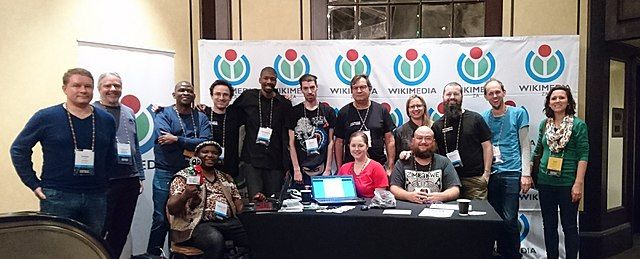Over a billion unique devices use Wikipedia each month, with mobile phones accounting for a significant portion of those devices. The African community, in particular, is made up of a huge number of individuals, primarily young people who use mobile phones to access the internet, and Wikipedia is one of the most popular information sources on the internet for the majority of Africans[1]Wikimedia Foundation.
When you consider who has written the majority of human history, it is nearly always males, and the tale is almost always given by the victor. People from the global South, particularly Africa, are consistently underrepresented among Wikimedia contributors. Contributors from Europe and Northern America, on the other hand, make up a disproportionate majority of Wikimedians. Editors are largely white, middle-class from Western nations, which has resulted in some imbalance in the material available on Wikipedia, especially from the English Wikipedia compared to other language Wikis.
To address this issue, the Wikimedia Foundation has created AI tools such as the wm-bot, which can be configured or taught to translate material from the English Wikipedia to various African language Wikis, add photographs, police vandalism, and gather metrics. However, human interaction will still be required to triage the bot’s work.

Representation is necessary
Over the years, the Wikimedia Foundation has recognised that a Wikipedia with more diverse content will support a more diverse readership. Surveys conducted by the Wikimedia Foundation have shown that there is a clear self-focus bias amongst readers, where people read about content that is related to their identity or context. For instance, women are more likely than men to read biographies of women (and vice versa). People read articles about places near to them. Younger readers are more likely to read about younger people.[2]Thriving Movement#Community and Newcomer Diversity
Research[3]Report/Collaboration, Diversity has also shown that there are very few articles about women, and very little representation of non-binary people or people in the LGBTQ Plus community, very little representation of people outside of the Western world. The reason behind this is the lack of representation of these groups of people, and many of the AI are developed from the vantage of the English language, which is important to understanding the limitation of the AI tooling.
Although AI is quickly progressing, a restriction today may no longer be such tomorrow. However, a lack of representation implies that the AI continues to lack context, which inappropriately depicts certain information, and this continues to affect the content and biases.

The Future
Launched in 2015, the AI translation tool has translated over 1 000 000 Wikipedia articles in over 300 different languages enabling many people to have an encyclopaedia for the first time in their native languages.
Accuracy has been an issue for AI due to its several layers. Some writing styles are incorrect, this means that some words have negative connotations while others have positive connotations, and this influences the outcomes of the translated content. Notwithstanding, the ability of the AI text creation tool to produce complete paragraphs exists despite all of these difficulties. The development of new articles in small Wikipedia languages has been assisted by AI tools. Unlike Google Translate, which only supports a restricted number of languages, the translation tool supports a larger number of languages, including all of South Africa’s official languages (with the exception of IsiNdebele).
More reading on how Wikipedia uses AI:
The amazing ways how wikipedia uses artificial intelligence
Consider banning machine translations